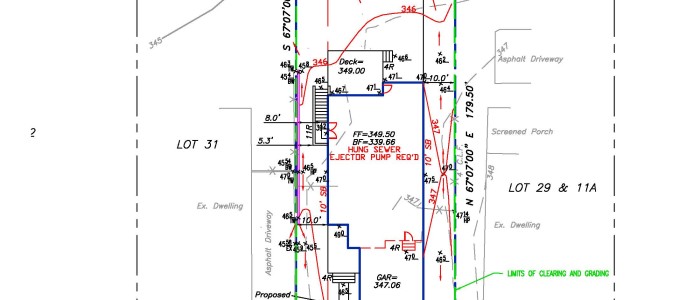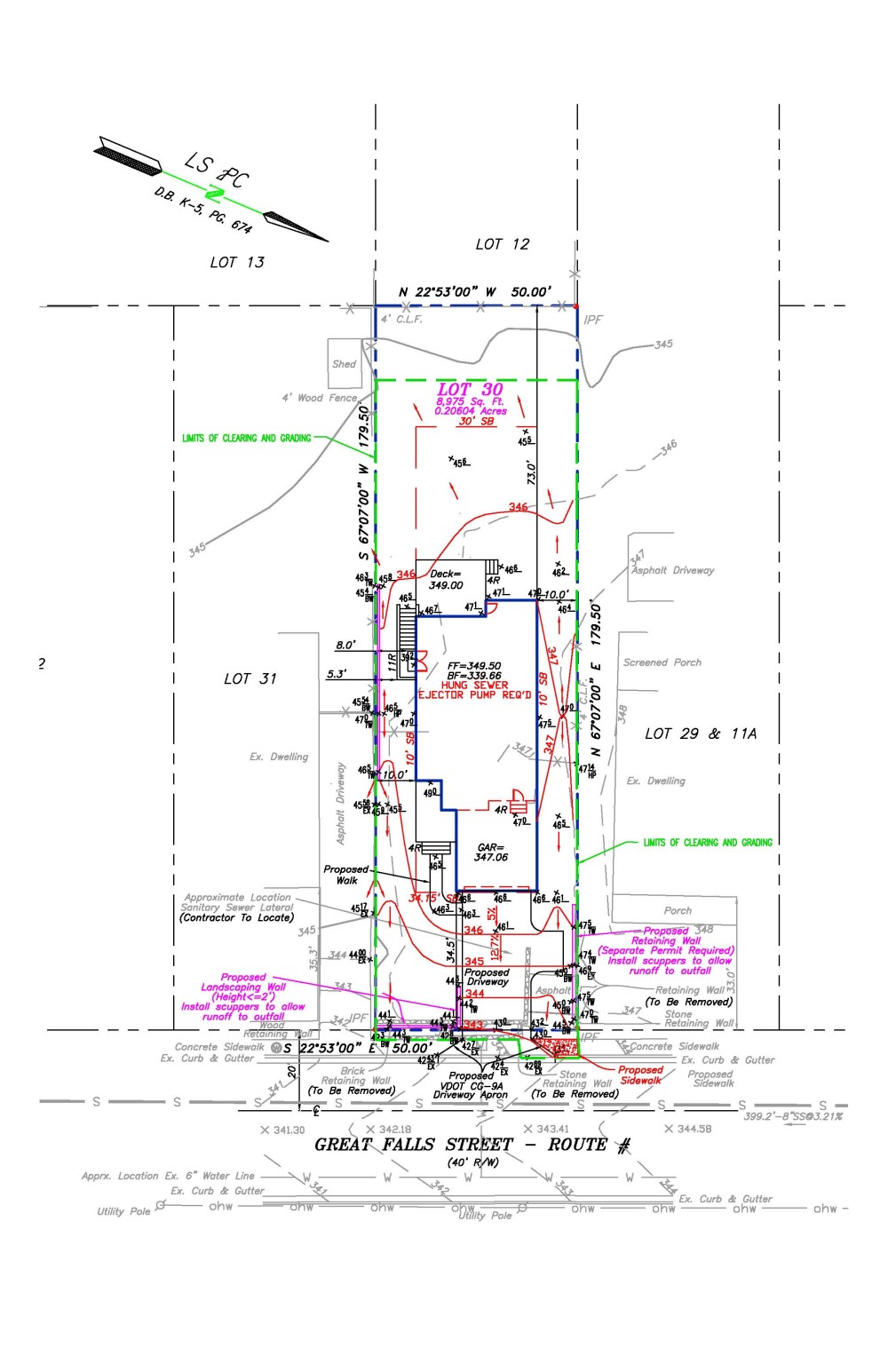Building a Custom Home Series, Part VII: Choosing Your Site Engineer

One of the first tasks you’ll have after your lot is secured and you’ve selected your home design is to hire a Site Engineer. The Site Engineer will develop your grading plan. Almost everything that happens on your site during construction is dependent on your grading plan. It details the house placement, grading, storm water management, utility locations, etc.
Choosing the right engineer for your project is important. They will help you through decisions like determining the best location for the house, best elevation to guarantee positive grading and storm water management options. Like with the building of the house, things can come up on the site side as well. Partnering with the right company can be critical to getting through the unexpected with the least amount of headache.
How should you go about choosing the right engineer?
Get recommendations. If you have friends or family who have built a custom home, ask them. Your builder will also be able to recommend engineers they have built relationships with over the years. I always recommend talking to at least two different companies. The scope of their services and pricing will vary. Some engineers will source all the necessary components to complete the grading plan (i.e. soil engineer, arborist, etc.) while others will require you to hire these players on your own. I think it’s easier to hire an engineer willing to coordinate all of this work for you. They will hire, schedule and then apply their findings/reports to the grading plan. All the billing is through one company. Keeps it simple.
When you call the engineer, let them know you are building a custom home (hopefully with NDI!) and you’d like to discuss hiring them to do the grading plan. They will need the property address so they can do some preliminary investigating. Based on the county, they will provide you with a proposal outlining their services.
Not all engineers are created equal. You can probably find an engineer out there that is willing to work for you for pennies (relatively speaking). If you only get one thing from my blog, please let it be this…you get what you pay for.
I had a client who built a home with us in 2012. At least that is when construction started. When we were digging the hole, the excavator hit a sewer line. It ended up being the neighbor’s sewer line that ran through our client’s lot in a private easement. Private easements aren’t always recorded with the county. They are recorded in the title report. Any good engineer will require you to provide them with a title report so they can look for any unrecorded easements.
The engineer hired by our client was provided with the title report. Unfortunately, the company didn’t read it. Had it been read, the easement would have been noted and the engineer would have shifted the location of the house over slightly. There was plenty of room to do this, and it would have avoided over 6 months of delays and the legal issues our client was left to deal with due to the engineer’s negligence.
After you have carefully selected your site engineer, the first thing they’ll do is schedule some field work. In order to properly site the house, they need to know the topography of the lot. This field work typically takes 2-3 weeks to complete.
Once the field work is done, the engineer will need a final footprint of the house you are building. Your builder (hopefully NDI!) can provide this to you once you have made all the structural changes that impact the footprint (basement exit, house size, addition of any deck or porch, etc.). After the engineer has the footprint, they should provide you a preliminary siting which looks like this…
Now would also be a good time to meet with the engineer to discuss these items and any other concerns before they finalize the plan for county submission. After you give them the ok to proceed, the engineer will work on finalizing the grading plan. During this time, they will be sourcing out the arborist to come up with the tree plan and the soil engineer to conduct any soil testing as required by the county.
In Fairfax County, a limited geotechnical report may be required (a full geotech report if the soils are deemed to be “bad”). The soil engineer will also need to provide soil testing to verify the soil is adequate for a storm water management facility (i.e. rain garden or infiltration trench). If the soil is deemed inadequate, the engineer will have to provide the county with a “waiver” letter. This letter asks for permission to install an alternate method of storm water management (planted buffer zone). The waiver approval process can take anywhere from 1-2 months. After the waiver is approved, that information is then applied to the grading plan before the full plan can be submitted to the county for final building permit approval.
While the engineer is working on completing the grading plan, your builder (hopefully NDI), can be working on the house plans. It’s ideal to have the house plans and the grading plan completed at the same time so they can both be submitted into the county for approval.
How do you survive the county permitting process? Stay tuned!
Dream Big. Build Smart.

Thanks for explaining how you should go about hiring an engineer for your site. My sister wants to build her own home. She should definitely hire a lot of people to make sure that goes well.